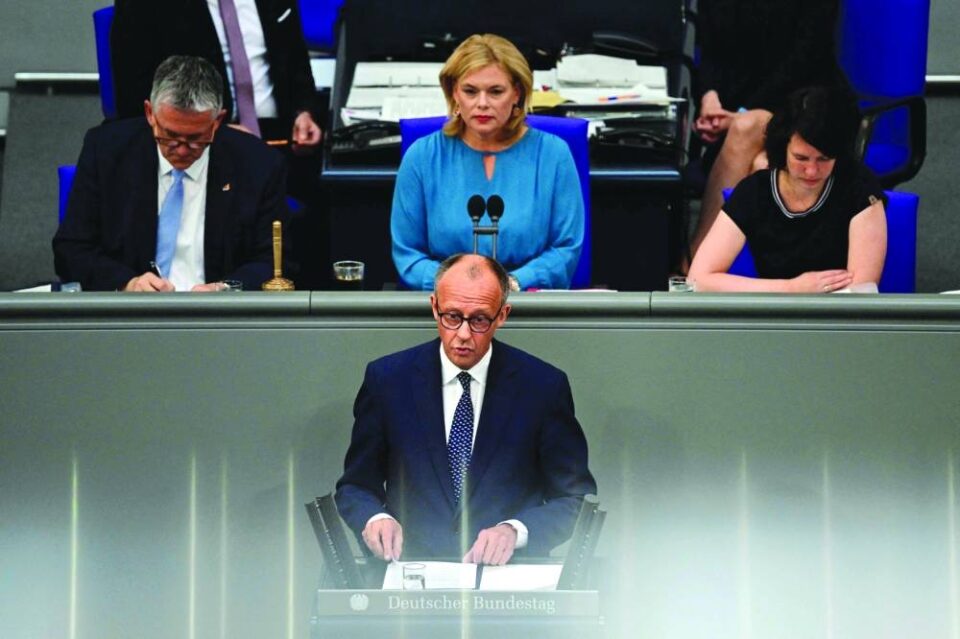German Chancellor Friedrich Merz pledged yesterday to build up “the strongest conventional army in Europe” as the continent faces a hostile Russia while the Ukraine war rages on.“This is appropriate for Europe’s most populous and economically powerful country,” Merz told parliament. “Our friends and partners also expect this from us. Indeed, they practically demand it.”In his first major address to the Bundestag since his government was inaugurated last week, Merz vowed to “provide all financial means necessary” for the long-underfunded defence forces.Germany, with its dark World War II history, has long been reluctant to spend big on its military and funding dropped off sharply after the Cold War as European countries relied on Nato heavyweight the United States for security.US President Donald Trump has demanded that Germany and other allies spend more on common defence and thrown into doubt Washington’s future commitment to the transatlantic military alliance.Merz has pledged a greater diplomatic and security role for Berlin in Europe at a time of high geopolitical tensions.He warned yesterday that “anyone who seriously believes that Russia would be satisfied with a victory over Ukraine or with the annexation of parts of the country is mistaken”.His government has already cleared the way for a spending “bazooka” worth hundreds of billions of euros in extra funding for defence and infrastructure by getting a fiscal plan passed by the previous parliament.“Strengthening the Bundeswehr (armed forces) is our top priority,” Merz said. “The German government will provide all the financial resources the Bundeswehr needs to become Europe’s strongest conventional army.”“Strength deters aggressors, while weakness invites aggression,” he added.He also emphasised continued support for Ukraine but also said that “we are not a party to war, and we don’t want to become one”.“Our goal is a Germany and a Europe that are so strong together that we never have to use our weapons,” Merz said. “To achieve this, we will have to assume more responsibility within Nato and the EU.”For now, the challenges are huge. In recent years, Germany’s Bundeswehr has been mocked for equipment failures, including helicopters that cannot fly and rifles that do not shoot straight.Russia’s full-scale invasion of Ukraine over three years ago jolted the centre-left former chancellor Olaf Scholz into action.He announced €100bn ($112bn) in extra defence spending, which has allowed Germany to meet the Nato target of 2% of GDP.But much remains to be done, and the parliamentary commissioner for the armed forces, Eva Hoegl, recently warned that the military still had “too little of everything”.Major orders have been placed, including for new German-built submarines, but they will take years to build and deliver.Germany halted military conscription under chancellor Angela Merkel, but Merz said steps would be taken to rebuild troop strength.“We will create a new, attractive voluntary military service,” he said.“There are many young people in our country who want to take responsibility for Germany, its defence capability, and its security. We want to and we will promote this.”Defence Minister Boris Pistorius later suggested in parliament that the recruitment drive may not stay voluntary.“We have agreed that we will initially rely on voluntary participation, creating a military service that is initially based on voluntary participation and is intended to encourage young people to serve their country,” he said.“And I say quite deliberately and honestly, the emphasis is on ‘initially’ in case we cannot recruit enough volunteers.”
